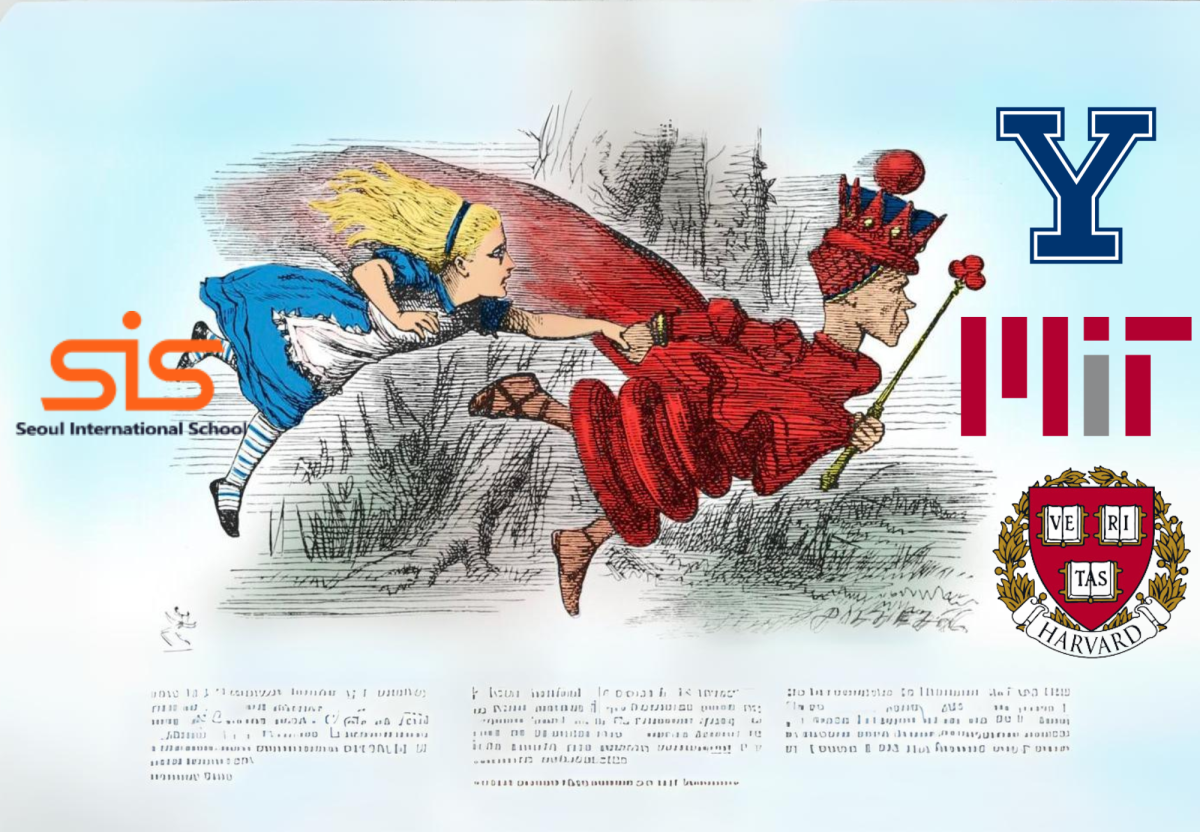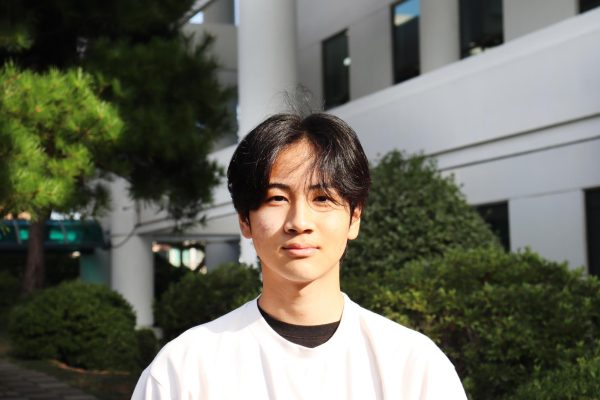Every morning, I wake up worried about my future. More specifically, I’m worried about the fact that one single college application will be deciding it. This fear is especially amplified by the perception that everyone around me has a private college consultant.
This trend is not only existent within SIS, but consulting has become the norm globally; almost all students receive some form of high-end guidance, often starting the process years in their freshman year. Consequently, consulting has become Alice in Wonderland’s Red Queen: it is no longer a way to get ahead, but simply a necessity in order to not lag far behind their peers.
However, this is a common misconception; private college consulting does not provide any apparent advantages for students but rather puts them at risk.
“Consulting has risen in popularity here, especially over the last 10 years,” Kelcey Edwards, SIS college counsellor, said. “Many families seem to hire consultants out of fear–a perception that they will be at a disadvantage in the admission process without one–which is heartbreaking. Consultants seem to follow a formulaic checklist, direct students to apply to a limited set of schools, falsely inflate expectations, and often spread misinformation.”
Going to any college is a tough task, especially prestigious universities that require students to stand out in order to be admitted. Especially in SIS, notorious for its hyper-competitive curriculums and grading, the school environment feels more like a conveyor belt to college rather than a standalone learning environment; it almost feels that there is little meaning in learning or having meaningful experiences if they can’t be turned into a college essay. With such high pressure for students to perform at the top, it is no wonder that college consulting has risen as a tool for students to prepare for college admissions.
Although “consulting” technically only refers to the action of providing insight and guidance, it is a well-known fact that many consultants embrace unethical means to create resumes for their clients. Some are notorious for fabricating extracurricular activities for students, whether it is through hosting their own competitions or helping students win prestigious awards—for a fee, of course. Since almost all students have their own private consultants, simply being outstanding is no longer enough; even the brightest students are now feeling pressured to partake in these underhand practices. If they do not, they feel that they will be disadvantaged compared to their peers.
“Does it sound like a 45-year-old man or a 17-year-old student? You can often sense the difference in style,” Kelcey Edwards said. “Colleges have more than enough qualified applicants; they are not going to spin their wheels to authenticate if a resume or essay seems suspect. They will simply deny and move on to the next application. Why would you work so hard for so long, and then put it at risk by crossing an ethical line?”
Beyond the issue of fairness, consulting comes with another major consequence: the financial burden. In the US, parents might save up money to pay for their children’s college tuition; Korean parents start saving money for an even longer time to pay for consultation fees. Consulting firms charge ridiculously high prices, which have skyrocketed recently due to a surge in popularity. With elite services starting at around 30,000 USD, parents are forced to shoulder the burden – not getting consulting is no longer an option.
However, despite its astronomically high costs, the benefits of consulting are not guaranteed; although many consultants advertise their success in sending students to Ivy League schools, those cases are few out of possibly hundreds of “failed” clients. Also, due to the elusive nature of the consulting industry, the claims that consultants make regarding their careers can not be guaranteed. For example, many private college consultants submit the same college essays for multiple of their clients.
“I do not believe consultants give students an edge,” Ms. Edwards said. “If their formulaic checklist worked, why doesn’t the student get into every school they apply to? Why don’t all of their clients get into all of ‘those’ schools?”
Colleges have promised to make the admissions process as fair as possible, having historically prioritized marginalized groups through scholarships. However, elite consulting is upsetting that entire principle by providing advantages to the richest students that are out of reach for low-income families. In that sense, it is undoing colleges’ efforts to make the system fairer.


